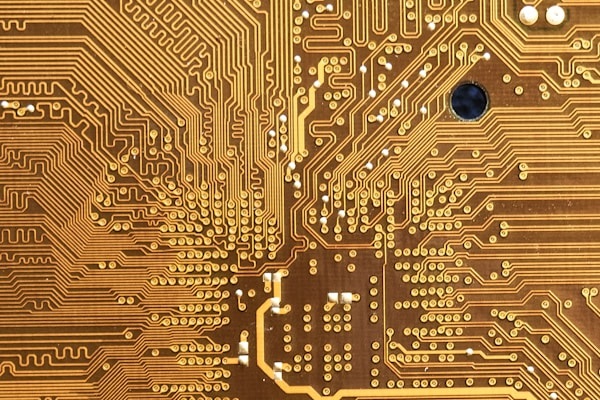
In the ever-evolving landscape of technology, quantum computing emerges as the intriguing trailblazer, promising to revolutionize our interaction with gadgets. While the term “quantum” often conjures images of perplexing physics, quantum computing applications are far from science fiction. Let’s delve into this fascinating realm where the rules of classical computing no longer apply, and where qubits, superposition, and entanglement reign supreme.
Understanding Quantum Computing
Demystifying Quantum Mechanics
Classical Computing vs. Quantum Computing
Classical computers, such as the one you’re using to read this article, rely on bits, binary units that are either 0 or 1. Quantum computers employ quantum bits or qubits, which, thanks to superposition, ca
n represent both 0 and 1 simultaneously. This duality offers unparalleled computing potential.
Quantum Bits: The Building Blocks of Quantum Computing
The Power of Superposition and Entanglement
Superposition isn’t the only quantum phenomenon in play. Entanglement, the spooky connection between particles regardless of the distance that separates them, is equally crucial. Entangled qubits can be manipulated in unison, opening the door to even more advanced calculations and applications.
Quantum Computing Technologies
Quantum Hardware: From Qubits to Quantum Gates
Quantum Software: Programming in the Quantum Realm
Writing software for quantum computers requires a specialized set of skills. Quantum programming languages, like Q# and Quipper, enable developers to exploit the power of qubits. Quantum software is designed to exploit quantum algorithms efficiently.
Quantum Algorithms: A Glimpse into Quantum Speed
Quantum Computing Applications in Gadgets

Quantum Sensors: Revolutionizing Measurement
Quantum Communication: Unbreakable Encryption
Quantum Processors: Enhancing Speed and Efficiency
Quantum Memory: The Future of Data Storage
Quantum Sensors in Smartphones: A Peek into the Future
Challenges and Limitations
Overcoming Quantum Noise
Quantum computers are highly susceptible to environmental noise, which can lead to errors in calculations. Researchers are diligently working on error correction techniques to mitigate this challenge and make quantum computing more reliable.
Quantum Error Correction: A Necessity
Quantum error correction codes, similar in concept to classical error correction, are pivotal for maintaining the integrity of quantum computations. Developing efficient error correction methods is an ongoing challenge for quantum scientists.
Scaling Up Quantum Computers: The Quantum Advantage
Quantum computers are still in their infancy, with a limited number of qubits. The race is on to scale up quantum devices to tackle more complex problems efficiently and take full advantage of their capabilities.
Quantum Computing’s Energy Footprint
Quantum computers are power-hungry beasts. Cooling systems and extreme environmental conditions are required to maintain the delicate quantum states. Addressing the energy efficiency of quantum computing is vital for its sustainable integration into gadgets.
Real-World Examples

Google’s Quantum Supremacy: A Milestone
In 2019, Google claimed to achieve quantum supremacy by performing a calculation in just 200 seconds that would take classical supercomputers thousands of years. This breakthrough marked a significant milestone in quantum computing.
IBM’s Quantum Computing: Bridging the Gap
IBM is a pioneer in quantum computing, making quantum devices accessible through the cloud. Their quantum computers, like the IBM Quantum Hummingbird, enable researchers and developers to experiment with quantum algorithms and applications.
Quantum Computing Startups: Pioneering Innovation
Numerous startups worldwide are pushing the boundaries of quantum computing. Companies like Rigetti and IonQ are driving innovation in quantum hardware, software, and applications, accelerating the integration of quantum technology into gadgets.
Future Prospects
Quantum Computing and Artificial Intelligence
The synergy between quantum computing and artificial intelligence promises to unleash unprecedented processing power, enabling AI systems to tackle complex problems more efficiently and creatively.
Quantum Computing and Healthcare
In healthcare, quantum computing can expedite drug discovery, optimize treatment plans, and accelerate genetic research. The ability to simulate complex molecular interactions will reshape the medical landscape.
Quantum Computing and Climate Modeling
Climate modeling, a data-intensive task, can greatly benefit from quantum computing. These machines can process vast amounts of climate data in a fraction of the time, facilitating more informed decisions for tackling climate change.
Quantum Computing’s Impact on Cryptography
While quantum computing presents opportunities, it also poses a threat to current encryption methods. The need for quantum-resistant cryptography is becoming increasingly urgent to safeguard our digital privacy.
Quantum Computing in Space Exploration
Quantum computing’s unparalleled computational abilities are set to revolutionize space exploration. From simulating celestial bodies to optimizing space missions, the possibilities are boundless.
Ethical and Security Concerns
Quantum Computing’s Potential for Cybersecurity
Quantum computing’s computational prowess could potentially undermine existing cybersecurity measures. Ensuring the development of quantum-safe encryption and security protocols is a pressing concern.
Privacy Implications of Quantum Computing
With the ability to crack current encryption standards, quantum computing raises significant privacy concerns. Protecting individuals’ data in the quantum age requires innovative solutions.
Ethical Use of Quantum Computing
As quantum computing advances, responsible and ethical use is imperative. Ensuring that these powerful tools are used for the betterment of society rather than harm is a challenge that society must address collectively.



